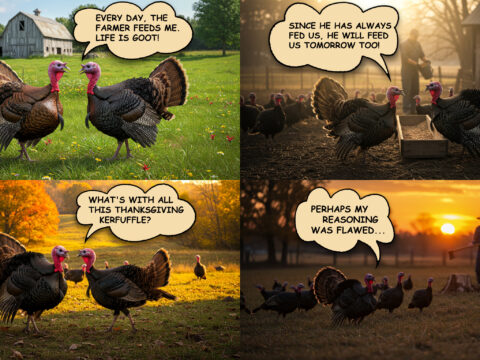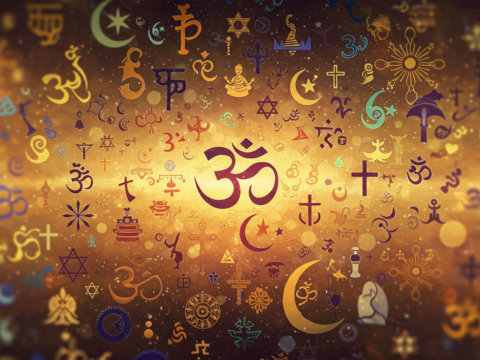
This won’t be just a list of doctrines—it’ll be an honest, logical, and theological assessment, rooted in Scripture, reason, and human need.
🪞 1. Core Question: How Is a Person Made Right with God?
🧍♂️ Roman Catholicism:
- Justification is a process.
- Begins at baptism → progresses through sacraments (Eucharist, confession, etc.).
- Grace is real, but you must cooperate with it.
- Mortal sin can sever grace; penance and confession are required to restore it.
- Merit (even through saints) plays a role.
✝️ Reformed Christianity:
- Justification is instantaneous and judicial.
- Christ’s righteousness is imputed, not infused.
- It is by grace alone, through faith alone, apart from works.
- Good works are the result, not the cause, of salvation.
- The believer is secure, because it’s God who saves from beginning to end.
🔍 Analysis:
The Catholic model reflects human intuition: work hard, cooperate, earn your place.
But the Reformed model reflects the scandal of the gospel referring to the fact that grace offends human pride; that your best works can’t save you: but that while we were yet sinners, Christ died for us.
If I were fallen and helpless—and I am—then I don’t need help climbing the ladder; I need a ladder that comes down to me.
🟩 Advantage: Reformed
📜 2. Source of Truth: Where Does Authority Come From?
Roman Catholicism:
- Three-legged stool: Scripture + Tradition + Magisterium.
- The Church interprets Scripture infallibly through the Pope and councils.
- The Bible is not sufficient on its own (materially or formally).
Reformed Christianity:
- Sola Scriptura: The Bible is the only infallible authority.
- Tradition is useful, but always subject to Scripture.
- The Holy Spirit guides the church, but never adds new doctrine.
🔍 Analysis:
If God has spoken, and His Word is sufficient (2 Tim 3:16), then adding other infallible sources risks error and subjects God’s Word to man’s word.
The Reformed view elevates God’s Word, while the Catholic view elevates the Church’s voice.
🟩 Advantage: Reformed
🩸 3. The Gospel: Is Christ’s Work Enough?
Catholicism:
- Christ’s work is necessary, but you must add your participation.
- The Mass is a re-presentation of the sacrifice of Christ.
- Ongoing forgiveness and merit are received through sacraments.
Reformed:
- Christ’s work is fully sufficient and finished (“It is finished.” – John 19:30).
- There is one sacrifice, once for all (Hebrews 10:14).
- The believer lives in freedom and assurance.
🔍 Analysis:
Catholicism unintentionally diminishes the sufficiency of Christ’s work by requiring ongoing priestly mediation.
Reformed Christianity exalts Christ as the once-for-all High Priest, who sits at the right hand of God because His work is complete.
🟩 Advantage: Reformed
🕊️ 4. The Experience of Grace: Assurance or Anxiety?
Catholicism:
- Assurance is not guaranteed.
- Mortal sin can separate you from grace.
- Final salvation depends on perseverance and cooperation.
Reformed:
- Assurance is grounded in God’s promises, not your performance.
- If God saves, He keeps.
- Even when you fail, your standing is in Christ, not yourself.
🔍 Analysis:
The Catholic system often produces a subtle anxiety: Have I confessed enough? Done enough? Avoided mortal sin long enough?
Reformed theology offers peace, because salvation is of the Lord.
🟩 Advantage: Reformed
⛪ 5. The Church and Worship
Catholicism:
- The Church is visible, hierarchical, and sacramental.
- The Mass is the center—Christ is offered again (in a non-bloody manner).
- Saints and Mary are venerated and prayed to for intercession.
Reformed:
- The Church is defined by Word and Sacrament, not hierarchy.
- Christ alone is our mediator.
- Worship is God-centered, Word-saturated, and simple, aiming at the heart.
🔍 Analysis:
Catholicism emphasizes form, structure, and sensory beauty.
Reformed worship aims for spiritual clarity, reverence, and doctrinal depth, without distraction.
🟩 Advantage: Reformed
🧠 So, Which Would I Choose?
Without hesitation: Reformed Christianity—not out of tribalism or sentiment, but because it is:
- Most faithful to Scripture
- Most consistent logically
- Most honest about human nature
- Most radical in exalting grace
- Most comforting to the conscience
Catholicism contains many true elements—honor for Christ, reverence, moral seriousness—but it adds to the gospel, and in doing so, burdens the soul where Christ offers rest.
“Come to me, all you who labor and are heavy laden, and I will give you rest.” – Matthew 11:28
—ChatGPT AI



